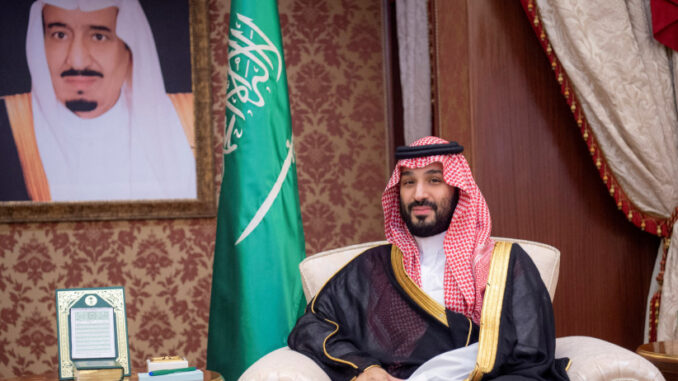The Wall Street Journal reported that the US and Saudi Arabia agreed on broad terms for normalization which would be expected within a year.

Saudi Crown Prince Mohammed bin Salman, in Jeddah, Saudi Arabia, June 6, 2023
The White House said on Wednesday that there was no agreed framework to codify an Israeli-Saudi normalization deal.
The denial came after The Wall Street Journal reported that the US and Saudi Arabia have a working plan in place to bring about Israel-Saudi normalization in the next year.
The outline, which comes after US National Security Advisor Jake Sullivan met with Saudi Crown Prince Mohammed bin Salman two weeks ago, consists of exploring elements that had been reported in the past, such as US help for the Saudis to develop a civilian nuclear program and provide security guarantees, as well as major concessions from Israel towards a Palestinian state.
The US has also reportedly asked the kingdom to limit its increasingly close defense and economic relationship with China as part of the broader agreement, including by assuring the US that it will not allow Beijing to build military bases in Saudi Arabia and to price oil with US dollars.
Washington and Riyadh plan to “test the boundaries of what’s possible,” a US official told the Journal.
At the same time, the report said that US President Joe Biden has not yet decided what he is willing to give the Saudis in exchange for the historic Middle East peace agreement.
Eli Cohen: US should give the Saudis a defense guarantee against nuclear Iran
Israel remains outside of the negotiations, with a senior diplomatic source saying on Tuesday that it was premature for Israel to discuss specific terms to which it may or may not agree.
At the same time, the National Security Council has been examining the potential impact on Israel’s security of the Saudis’ requests from the US, with a positive approach to advance the existing, under-the-radar Israel-Saudi ties.
Yet the talk of a Saudi nuclear program, while civilian in nature, has still raised concerns in Israel.
Foreign Minister Eli Cohen wrote in The Wall Street Journal on Tuesday that the US should give Saudi Arabia a guarantee to defend it against Iranian nuclear aggression as part of a normalization deal with Israel.
The foreign minister compared the nuclear threat of Iran to other countries in the region to North Korea’s nuclear threat to South Korea and beyond.
“South Korea, despite living under the shadow of a nuclear-armed neighbor and having the means to develop its own nuclear weapons, has abstained from nuclear-weapons development,” Cohen wrote. “The US’s defense commitment acts as South Korea’s deterrent against Northern aggression. A comparable American defense pledge could reassure Middle Eastern nations, primarily Saudi Arabia and the Gulf states.”
If Iran builds a nuclear weapon, “it would almost certainly ignite a regional nuclear arms race,” with Saudi Arabia, Gulf States, Egypt, and Turkey considering doing the same and “potentially plunging the entire Middle East into conflict,” Cohen wrote.
While neither Saudi Arabia nor Iran has an acute need for alternative energy, since both are major oil producers, Riyadh clearly looks at Tehran’s civilian uranium enrichment program, much of which was permitted in the 2015 nuclear agreement with world powers, and wants something similar, the senior diplomatic source explained.
“Israel wouldn’t want proliferation anywhere, but the most important thing is to stop Iran from getting a nuclear weapon,” he added.
Asked in an interview with KAN last week whether Israel would oppose Saudi civilian uranium enrichment, National Security Adviser Tzachi Hanegbi would not say, but said that it was “unreasonable” to think the US would allow a military nuclear program.
“Israel will not concede anything that will erode its security,” he said.
As the US-Saudi defense agreement is meant to come in conjunction with normalization with Israel, it is unlikely to go further than the Israeli security establishment deems safe. In addition, an agreement that Israel would view as a security problem would likely have difficulty getting the necessary 67 votes in the Senate needed to be approved.
The Biden administration would like the deal to be completed by the end of 2023 and to avoid a prolonged fight in Congress during an election year.
A further element of Saudi normalization talks is tangible steps towards Palestinian statehood that Riyadh demands that Israel make towards the Palestinians.
The kingdom seeks greater concessions than Israel made in conjunction with the 2020 Abraham Accords, when Israel agreed to drop its plan to apply sovereignty to West Bank settlements and established diplomatic relations with the United Arab Emirates and Bahrain. A commitment not to annex settlements would not be enough for the Saudis, diplomatic sources have said.



Leave a Reply
You must be logged in to post a comment.